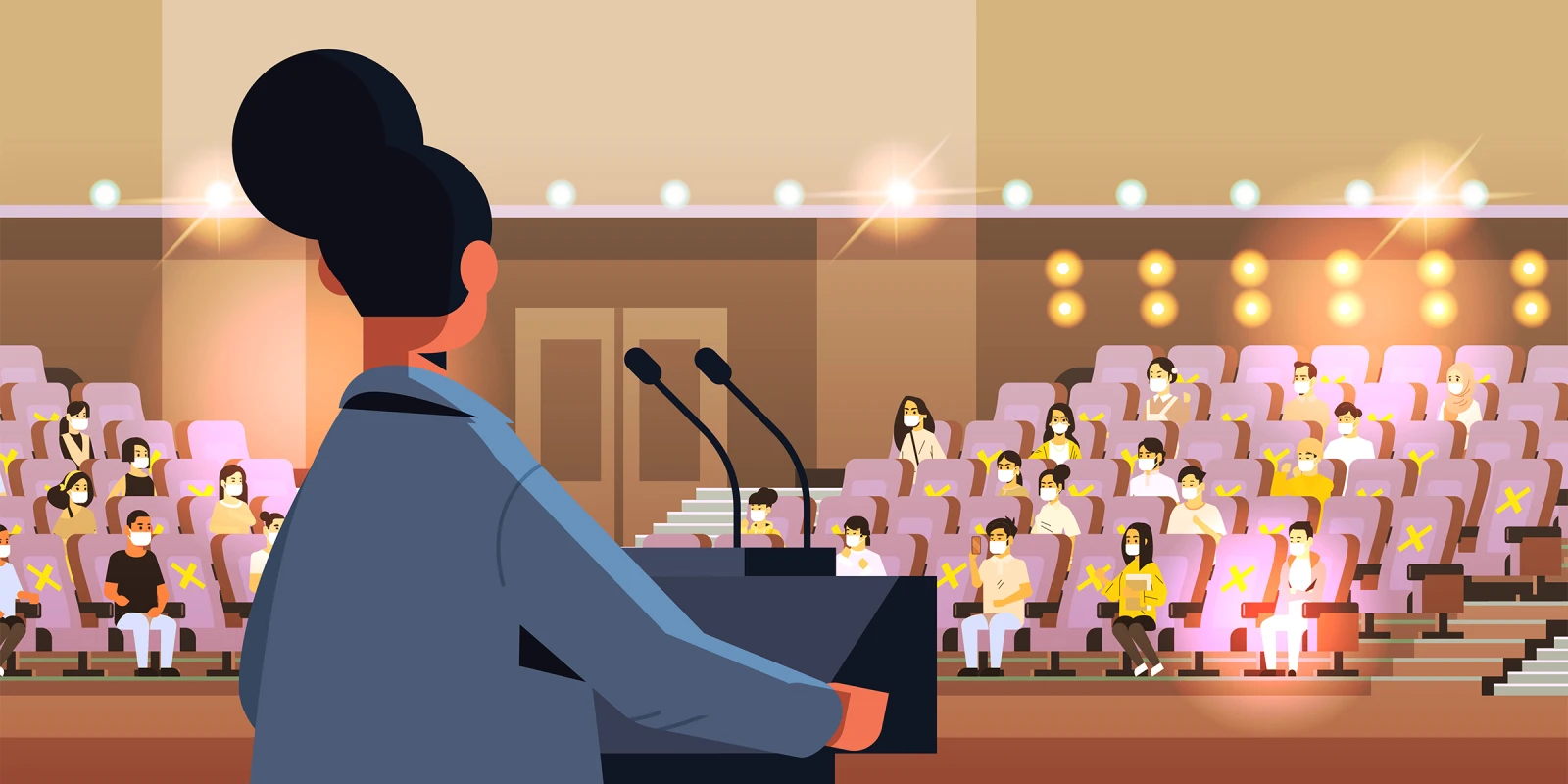Dr. Seiko Diane Yamada is a board certified gynecologic oncologist and currently sits as the President of the Society of Gynecologic Oncology. Following the SGO Annual Meeting on Women’s Cancer, held from March 18th to the 21st, Doximity sent Dr. Yamada a set of questions to have her reflect on the success of the conference.
How did you land on the theme of your presidential address for SGO 2022?
The theme of my presidential address centered around “Building Bridges and Breaking Barriers to Improve Gynecologic Cancer Care” and promoted leadership as a means for our gynecologic oncology community to achieve this. Given the comprehensive approach the gyn oncology team takes to patient care, we have a unique perspective to be able to highlight barriers to research, access to healthcare, clinical trials and novel therapeutics, education of our trainees and sustainability of our workforce. With health care team members who are leaders in translational science, clinical trial development, financial toxicity, education, health care networks and industry, we can identify these barriers and start to build bridges to address these gaps and improve outcomes for our patients.
What key topics and major questions do you believe resonated with the community?
- Awareness that there are active measures we can take to introduce a health equity lens to healthcare to improve outcomes for our patients.
- We must do a better job of disaggregating the data we have when it comes to race and commit to addressing barriers to enrollment of underrepresented patient populations into our clinical trials.
- Huge strides are being made with novel therapeutics.
- Financial toxicity can be addressed in meaningful ways for our patients by addressing issues like medication packaging.
- Everyone needs access to genetic and tumor testing capabilities that give them access to targeted therapies.
- An in person meeting reinvigorated the realization that we are a community committed to our patients and to each other.
Is there a presentation or speaker that most stood out to you, and why?
All our speakers were fantastic but two significantly stood out. Dr. Nwando Olayiwola, Chief Health Equity Officer and Senior Vice President for Humana, Inc., spoke about strategies to introduce health equity into the care of our patients. Dr. Keiichi Fujiwara presented the results of his randomized phase III IP carboplatin trial in ovarian cancer (iPOCC) which not only demonstrated a PFS advantage for IP carboplatin and dose dense paclitaxel compared to IV therapy, but also had a highly personal tribute to Ms. Eriko Aotani, the chief study coordinator and Dr. Franco Muggia, a luminary member of the study’s IDMC, both of whom passed away before the trial results were known.
SGO presented a curated Master Class series this year. How do you believe clinicians might have benefitted from the various classes, or from these types of curated courses in general?
The Master Classes were new this year and quite popular as they took key topics of interest to our members and did a deeper dive into topics such as Uncommon Gynecologic Cancers, Building Clinical Research Programs, and Enhancement of Perioperative Quality, Safety and Outcomes. Scientific abstracts were embedded into these sessions to contextualize the topic areas and the classes were curated to allow for identification of barriers within the topic areas and the inclusion of speakers who could bridge those barrier areas. They were also meant to appeal to practitioners who might be approaching the topic areas from different perspectives making the classes attractive to a wider audience.
What else do you believe set this year's conference apart from previous years?
What also made this year’s meeting different was my program chairs’ and SGO staff’s commitment to ensuring we built as much community as possible around science and education. This was achieved not only by being able to meet in person for the first time in 3 years but also by committing to a fully hybrid meeting where we could live stream speakers who might have been unable to attend in person and having a platform where virtual attendees and in person participants could chat and interact. We wanted to make this meeting accessible to as many people as possible wherever they were.
What are three major takeaways you hope physicians walked away with from the conference?
- We all need to introduce a health equity lens to the work that we do to improve outcomes for our marginalized and vulnerable patients.
- Investment in investigators and clinical trials for endometrial cancer and cervical cancer have led to the identification of exciting novel therapeutics.
- Addressing barriers to clinical research funding and clinical trials, in particular, for endometrial cancer, will be necessary if we hope to turn the tide of worsening mortality.
Dr. Yamada has no conflicts of interest to report.
Image by gmast3r / GettyImages







